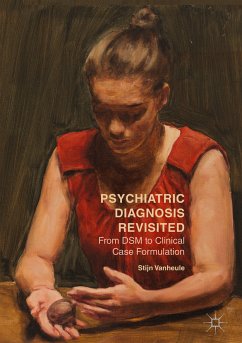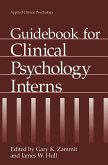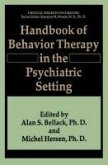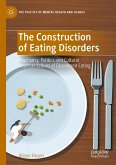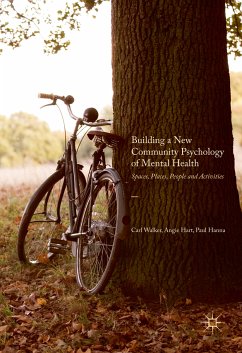Dieser Download kann aus rechtlichen Gründen nur mit Rechnungsadresse in A, B, BG, CY, CZ, D, DK, EW, E, FIN, F, GR, HR, H, IRL, I, LT, L, LR, M, NL, PL, P, R, S, SLO, SK ausgeliefert werden.
"The latest publication ... provides an alternative diagnostic approach for clinicians working in the 'psy-disciplines' via clinical case formulation. ... a thought provoking book relevant to a broad range of theorists, academic and clinicians interested in both the scientific / epistemological status of DSM and to clinical practice. ... Vanheule's book makes the case for an evidence based practice where more time - for both direct clinical contact and case formulation practice - is a necessary condition for best clinical practice." (Alessandro Musetti, Frontiers in Psychology, journal.frontiersin.org, June, 2017)
"This book ... is rigorously developed, authentic and open, and balanced in termsof taking the contextual perspective of the other as starting point. The case formulation approach is particularly suitable in the area of psychosis ... counterbalancing the toxic effects of the schizophrenia diagnosis and the meaning of devastating brain disease that has become associated with it. I would recommend it to all looking for a respectful and informative way to describe mental distress in the context of psychosis." (Jim van Os, Psychosis, Vol. 19 (2), May, 2017)

